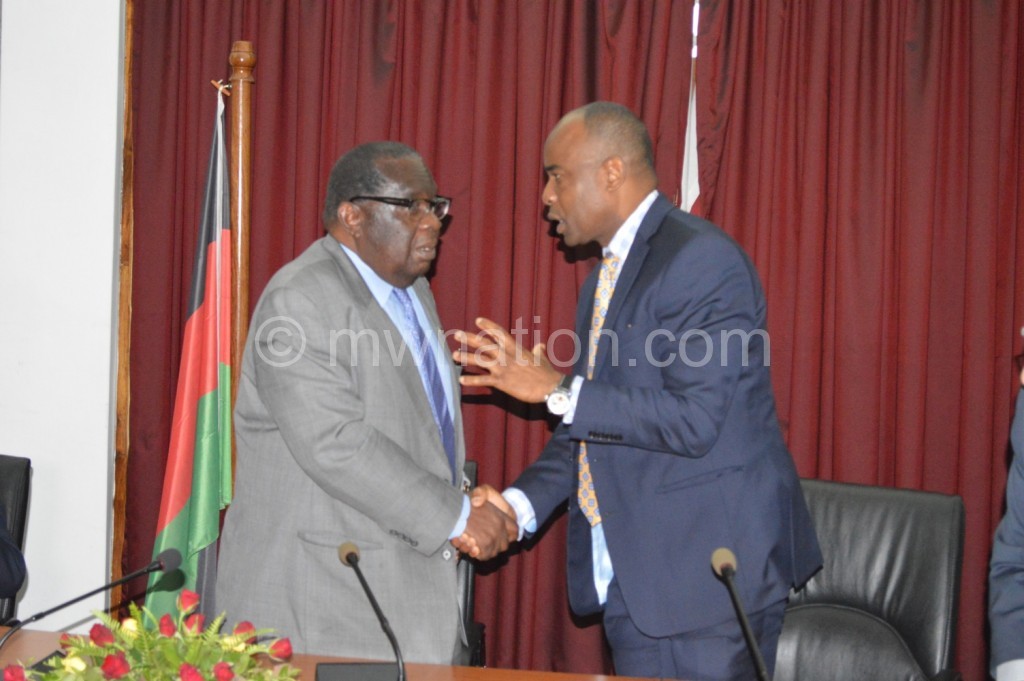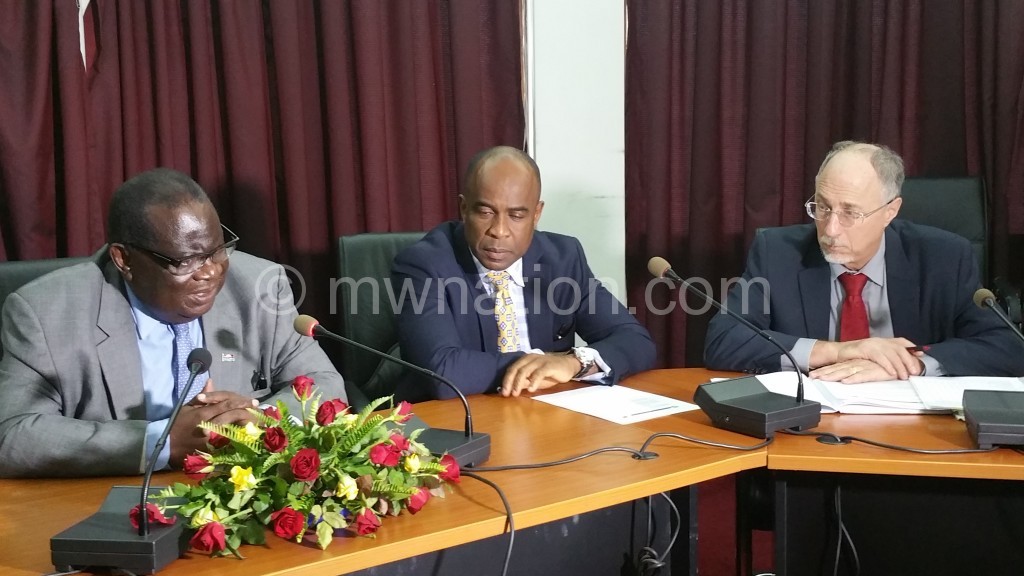Malawi returns to IMF programme
Minister of Finance, Economic Planning and Development Goodall Gondwe can breathe a sigh of relief after International Monetary Fund (IMF) yesterday declared the Extended Credit Facility (ECF) back on track.
But the IMF has cautioned Capital Hill to exercise restraint on the wage bill and to strengthen tax compliance to mobilise enough domestic resources in line with the country’s goals.

The IMF mission has been in the country from March 9 to determine Malawi’s fate on whether to resume the $150 million ECF programme declared off-track last September following the government’s failure to meet agreed targets.
But now, IMF mission chief Oral Williams has declared that Malawi has met programme targets on domestic financing and domestic borrowing.
Malawi fell off-track after registering a scary K78 billion in domestic borrowing at the end of 2014/15 financial year. However, this has been reduced to K4.3 billion by the end of December 2015 being the first half of the 2015/16 financial year.
IMF also declared that Malawi’s K929 billion National Budget for 2015/16 was unsustainable and advised the government to revise it downwards.
Again, Gondwe complied trimming the budget by K23.7 billion, of which K17.1 billion was cut from the recurrent budget and K5.6 billion from the development budget much to the consternation of some opposition members of Parliament (MP) who felt that public service delivery would suffer with the cut to the recurrent budget.
Briefing journalists in Lilongwe yesterday, Williams said: “Regarding programme performance, the authorities have demonstrated a concerted effort to put the programme back on track.
“Programme targets on net domestic financing and net domestic assets of the Reserve Bank of Malawi for end 2015 were met.
“The revised fiscal framework recently approved by Parliament is sufficient to meet the end June 2016 programme target on net domestic financing.”
The IMF commended the government’s public finance management reforms and especially the requirement that ministries and government departments must provide detailed fiscal reports before receiving allocations as one way of controlling over-expenditure.
However, the IMF observations are not all rosy as they have expressed concern with the low build up of foreign exchange reserves by end December 2015.
The IMF said it understands this was due to low export revenues and a volatile forex market.
In 2015, the country’s key exports slumped by 10 percent, from $1.75 billion in 2014 to $1.58 billion.
The kwacha depreciated by more than 35.6 percent between July 2015 and March 2016, but has since started gaining ground.
But while patting the government on the back, IMF has cautioned that structural reforms such as bank reconciliations need to be sustained going forward.
“Bank reconciliations and reporting on areas are like hand and glove. What is on the Ifmis [Integrated Finance Management Information System] books? If reconciliations can go well then producing arrears reports should follow naturally,” Williams said.
Reacting to the news, Gondwe expressed happiness that key targets have been met and made commitments to sustain the momentum.
“This time we have done better. Now the question is whether we can continue to do well. Public finance management reforms are very important to us and we will use these to guide us on what can be done better to get the system back to where it should be,” he said
In an interview last evening, Malawi Economic Justice Network (Mejn) executive director DalitsoKubalasa said the news was a welcome development that could signal positive reaction from development partners and other stakeholders.
He said: “But as IMF has said, caution should be exercised as it is very easy to backslide. We need to sustain the momentum especially in the targets where there has been concerted effort to improve.”
The IMF executive board is expected to consider the request after the completion of the seventh and eighth reviews under the ECF in May 2016.





